The European Commission announced the beginning of the CAP debates
Adelina Marini, April 13, 2010
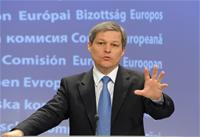 The future of the Common Agriculture Policy (CAP) and its interaction with the economic strategy Europe 2020 will be in the centre of the debate, which was given an official start on Monday by the European Commissioner for Agriculture Dacian Ciolos. The aim of the debate is by mid-2010 various opinions to be collected from citizens, farmers, agriculture organisations, non-governmental organisations and experts. The Commission will consider all ideas and positions and in the end of the year it will present a communication about reforming CAP for the period after 2013.
The future of the Common Agriculture Policy (CAP) and its interaction with the economic strategy Europe 2020 will be in the centre of the debate, which was given an official start on Monday by the European Commissioner for Agriculture Dacian Ciolos. The aim of the debate is by mid-2010 various opinions to be collected from citizens, farmers, agriculture organisations, non-governmental organisations and experts. The Commission will consider all ideas and positions and in the end of the year it will present a communication about reforming CAP for the period after 2013.
Why do we need a European Common Agricultural Policy? What are society’s objectives for agriculture in all its diversity? Why should we reform the CAP and how can we make it meet society’s expectations? What tools do we need for tomorrow’s CAP? These are the questions on which the Commission would like the debate to focus and for the purpose a special website has been launched.
In fact the discussion of the CAP reform has already started several months ago in the media in some of the big and old EU member states like Britain and France. Those are the countries which share opposite positions on the issue.
In the end of March the European Parliament has also joined the debate, putlining its ambitions to play a leading role from now on because of the new rights the Lisbon Treaty gave to the institutions. The Parliament developed a draft report, whose rapporteur is the MEP George Lyon. The draft is making some very interesting conclusions about the European agriculture policy.
For example, currently 13.6 million people are employed directly in the agricultural, forestry and fishery sectors, with an additional 5 million people working in the agri-food. This represents 8.6% of total EU employment. In the same time
the EU is the world’s largest producer of food and beverages and agriculture accounts for 4% of EU's GDP. Arable land occupies 47% of the entire territory of the EU, generating over €355 billion in production.
Small farms still remain predominant in the EU, with an average farm size of 12 hectares. In the meantime, subsistence farming accounts for half of the total
labour force.
On the most sensitive issue - the CAP expenditure - the draft report of the European Parliament points out that the share of CAP expenditure in the EU budget has steadily decreased from nearly 75% in 1985 to a projected 39.3% in 2013. The decline in budgetary expenditure on market measures is even more significant – from 74% of all CAP expenditure in 1992 to less than 10% at present. A large part of CAP expenditure has constantly moved away from market support and export subsidies to decoupled payments and rural development.
It is this argument that has been severely criticised by the blog for CAP reform. According to the author of a critical article, Valentin Zahrnt, reporting as a decline the wasting of less money than in the past, does not precisely reflect the changes in the policy. "It is not an argument that could justify the expenditure of a single euro on the CAP", he writes.
Further the draft report says that the EU has turned into a net importer of agricultural goods with over €78 billion worth of products being imported each year, which is around 20% of world's agricultural imports. In some cases the balance of trade has steadily shifted in favour of third countries. For example, the EU now imports €19 billion worth of agricultural products from Mercosur countries while it exports to the region less than €1 billion worth to the region.
It does not end here - the EU has also lost a significant market share globally for the past 10 years - if in 2000 the EU contributed with around 19% of world's trade with agriculture goods now this share is around 17 per cent. Rough data also show that global food demand is going to double by 2050 because of the expectations global population to grow from 6 bn to 89 bn people in the next 40 years, according to FAO.
Last but not least, George Lyon's analysis ends with a recent Eurobarometer research, showing that 90% of EU citizens surveyed consider agriculture and rural areas to be important for Europe's future. 83 per cent are in favour of financial support to farmers.
According to the European Parliament's draft report, the CAP reform should include the following key priorities: a fairer distribution of payments, especially with regard to the new EU member states (which currently receive less money); creating stimuli for farmers who comply their work with the environment and contribute to the greenhouse gas emissions reduction; if not increasing, at least keeping the CAP budget for the period post-2013 in order to allow the EU to realise its commitments and to succeed with its new priorities. Currently the budget of the EU is paying annually around 55 bn euro to finance the CAP.
The five pillars of the new CAP should be food safety and fair trade, 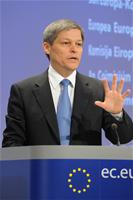 sustainability, agriculture for the whole of Europe, biodiversity, environment protection and green growth "to achieve a fairer, greener and more sustainable Common Agriculture Policy".
sustainability, agriculture for the whole of Europe, biodiversity, environment protection and green growth "to achieve a fairer, greener and more sustainable Common Agriculture Policy".
As could be expected, this document was severely criticised by Valentin Zahrnt in the capreform blog. He says that the main problem with the CAP approach is that past spending is being used to justify future expenditure. Not a smaller problem is the mercatintilist appetite for world market shares, as well as the constant drama about the survival of European farming.
"Together, they are examples of a fundamental problem in EU agricultural policy-making: the CAP debate is taking place in a bubble. All critical voices are marginalized and hardly break through the common positions of the European institutions, the farmers and rural interests. The CAP is made within a bubble by people who want to keep the CAP as it stands or to reform it as much as is necessary to preserve it", Valentin Zahrnt concludes.
Given the statement of the Agriculture Commissioner Dacian Ciolos that the CAP is not only for the experts but it concerns all European citizens, euinside will follow how the debate is going on so that we can see which positions are taking over and whether new ideas will come up. Nevertheless, it is good to have in mind that the EU is supposed to reform its agriculture policy not just generally but it also has to comply with other big producers like Japan and the US which heavily subsidize their production. This is why one of the good proposals in the draft report of the European Parliament is new common global standards of agriculture production to be introduced. However, this is a debate which will be lead outside the EU.
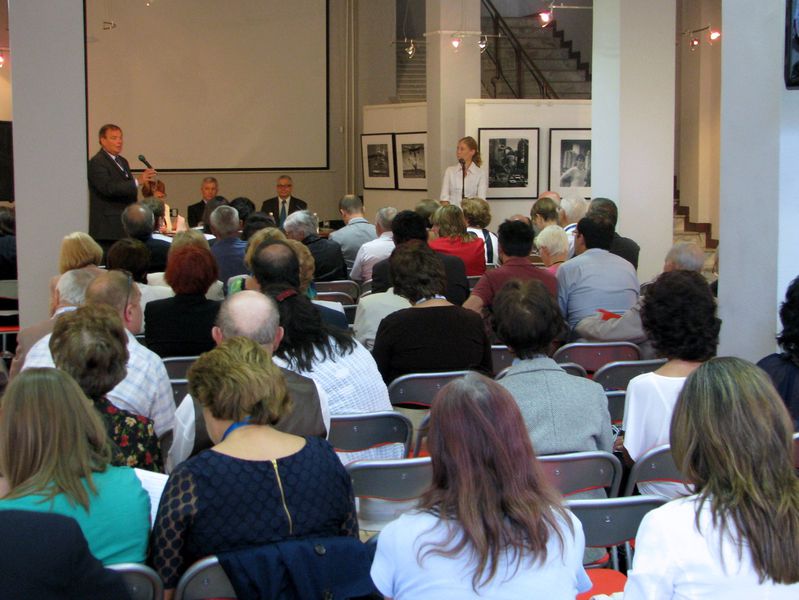 | © Polish Embassy in Sofia
| © Polish Embassy in Sofia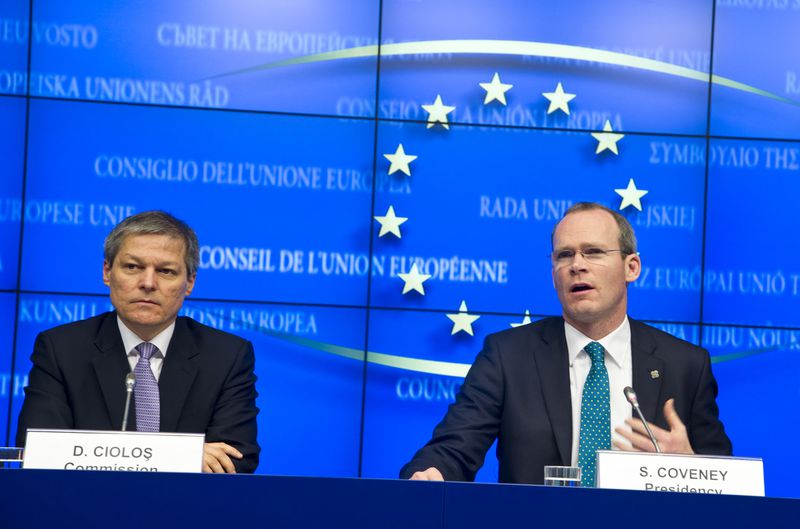 | © Council of the EU
| © Council of the EU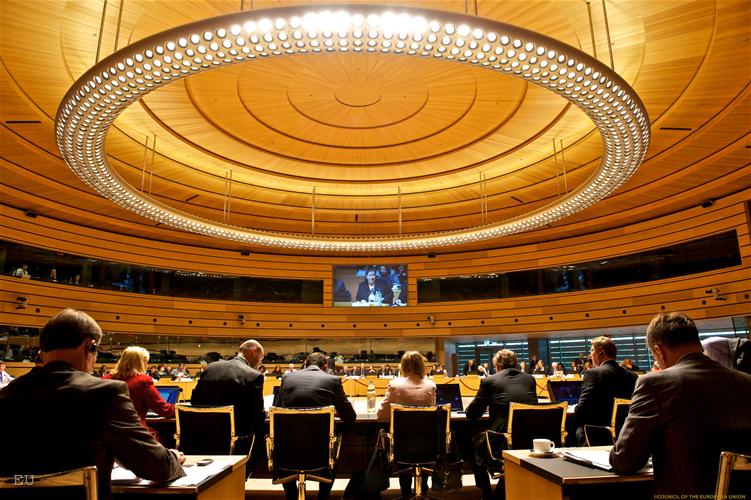 | © EU
| © EU